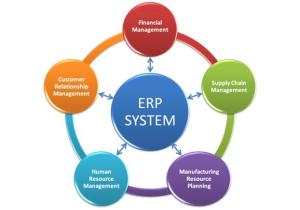In my last blog I discussed the advantages of DSS, however like everything else it has its downsides too:
- Expense: The decision support system requires intevestment to collect data from many sources and analyze them to support decision making.
- Over emphasis on decision making: ‘too many chiefs and not enough Indians’, managers get overly engrossed in making decisions without implementing them, the firm’s original mission statement goes out the window!!
- Assumption of relevance: once an IS has been installed managers assume it will never make mistakes, there is nothing more relevant that stake holder’s (managers, emplyees, customers etc) own opinions. It is called Decision Support for a reason! Training and improvement of skills will help avoid these problems.
- Status reduction: Some managers argue using a Decision Support System will diminish their status and force them to do clerical work. Managers and IS staff who advocate building and using computerized decision support need to deal with any status issues that may arise. This perception may or should be less common now that computer usage is common and accepted in organizations.
It is fair to say that the good outweighs the bad when it comes to DSS within organisations; however mangers need to keep these problems in mind before installing DSS and while implementing them to ensure staff and fellow managerial employees feel comfortable with them. This will ensure a happy workplace, with less absenteeism and staff-turnover.
I have spoken a lot about Decision Support Systems and their role in aiding organisations with decision making, but Enterprise Resource Planning (ERP) play a significant role in this regard as-well. Enterprise resource planning (ERP) systems integrate internal and external management information across an entire organization—embracing finance/accounting, manufacturing, sales and  service, customer relationship management, etc. ERP systems automate this activity with an integrated software application. The purpose of ERP is to facilitate the flow of information between all business functions inside the boundaries of the organization and manage the connections to outside stakeholders. ERP provides support to upper level management, it provides them with critical decision making information. This decision support allows the upper level management to make managerial choices that enhances the business.
service, customer relationship management, etc. ERP systems automate this activity with an integrated software application. The purpose of ERP is to facilitate the flow of information between all business functions inside the boundaries of the organization and manage the connections to outside stakeholders. ERP provides support to upper level management, it provides them with critical decision making information. This decision support allows the upper level management to make managerial choices that enhances the business.
To sum up in six simple words: Enterprise Resource Planning Systems Improve Decision Making!!!
References:
Bidgoli, Hossein, (2004). The Internet Encyclopedia, Volume 1, John Wiley & Sons, Inc. p. 707.
O’Brien, James (2011). Management Information Systems(MIS). New York: McGraw-Hill, Irwin. p. 324.
Elisabeth J Umblea, Ronald R Haftb, M.Michael Umble (2003) ‘Enterprise resource planning: Implementation procedures and critical success factors’ European Journal of Operational Research. Volume 146, Issue 2, 16 April 2003, Pages 241–257
Great blog and i loved the way you summed up in six words, very clever 😀
I wanted to get straight to the point! Glad you enjoyed the blog and thank you for reading it!
Very nice blog ! I enjoyed reading it 🙂
Great blog, I understand no one really likes looking at the downsides of things in this case DSS, but its still good to understand the impact it can have on things!! Always good to hear that the advantages still outweigh the disadvantages in DSS. Very clear and to the point 🙂